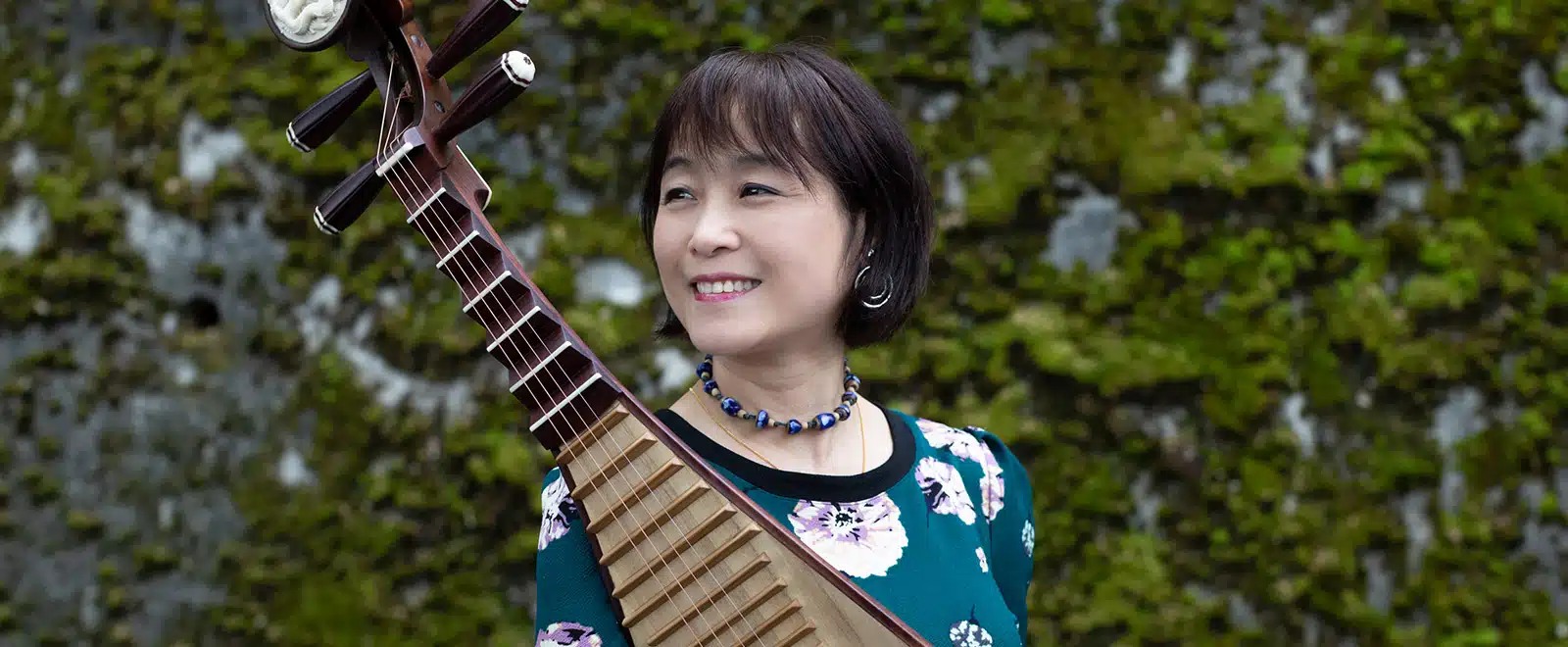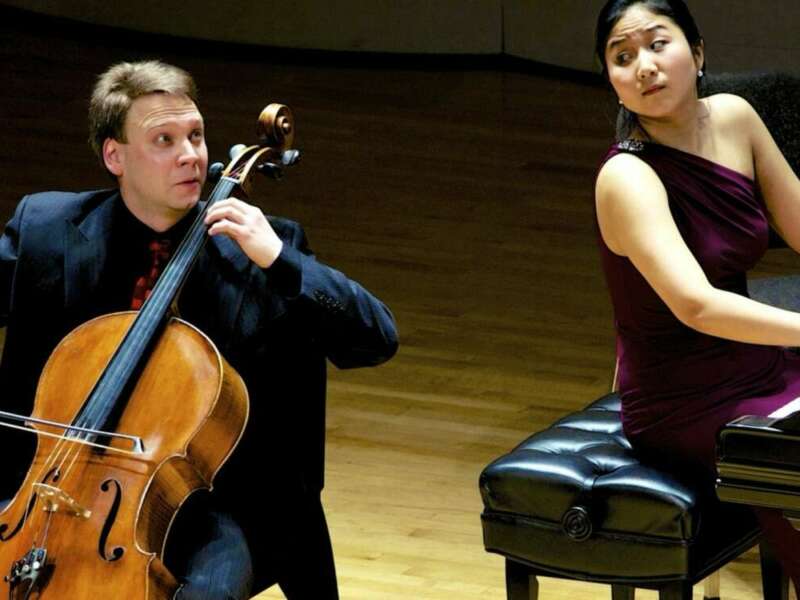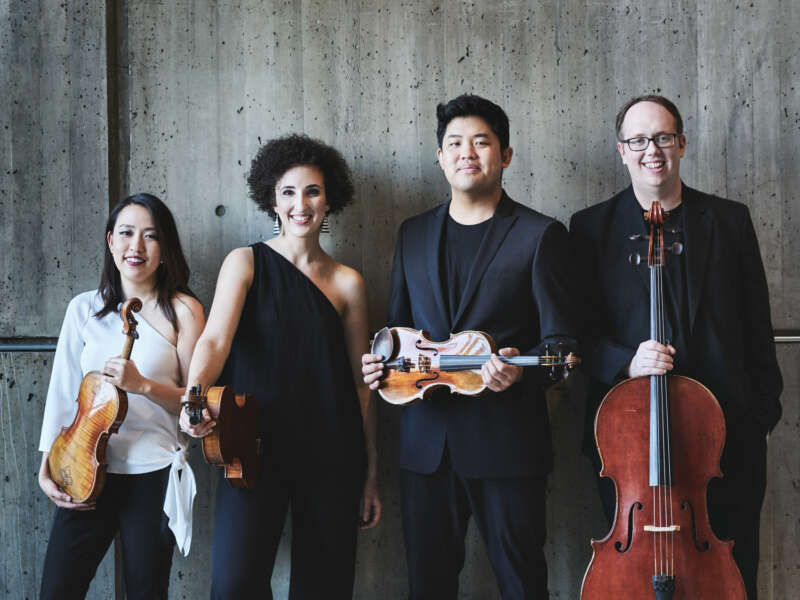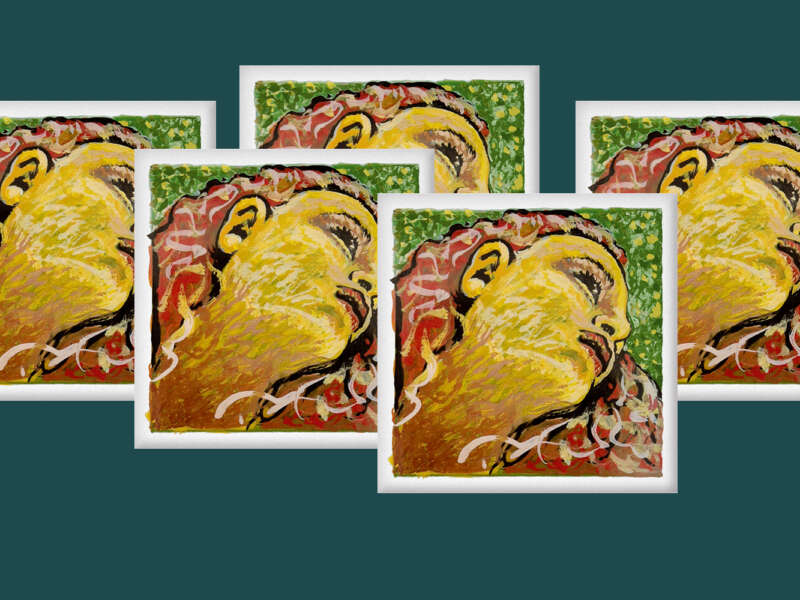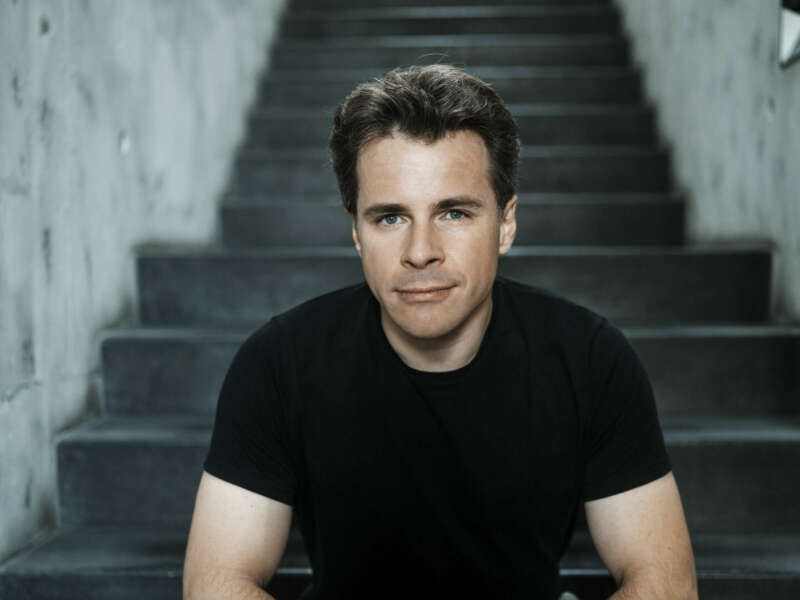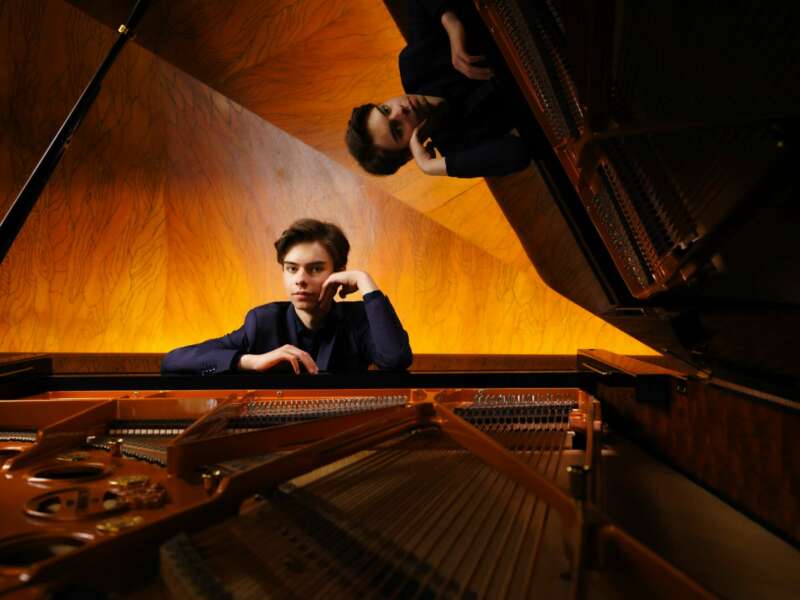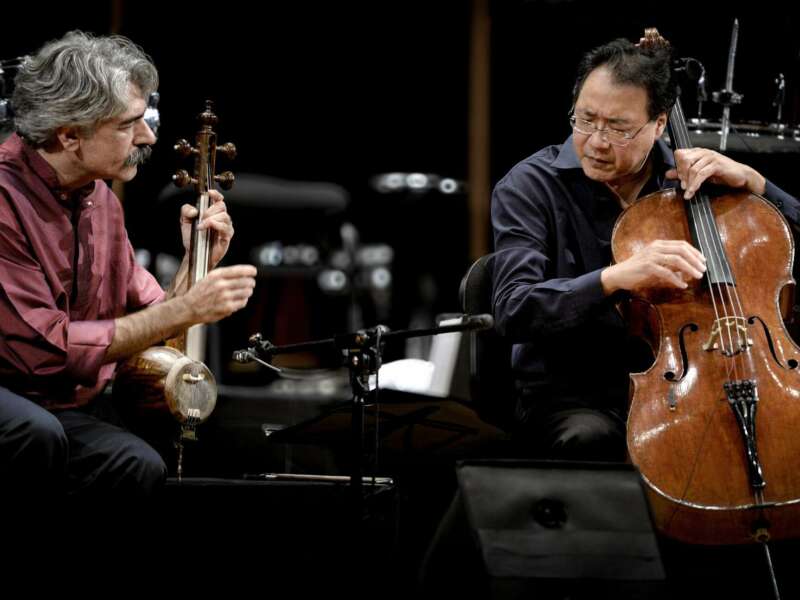Pipa Virtuoso Wu Man Discusses Blending Musical Cultures
Chinese pipa virtuoso, composer, and leading ambassador of Chinese music, will perform as part of Bard's China Now Music Festival on October 4 in NYC
The US-China Music Institute of the Bard College Conservatory of Music is hosting its sixth annual China Now Music Festival from October 2-8, 2023, at Bard College, the Asia Society, and Jazz at Lincoln Center.
The group of concerts will feature the Bard East/West Ensemble, an innovative music group combining Chinese and Western instruments to create a new model of cross-cultural performance, and many special guest conductors, soloists, and composers.
The festival returns to the Rose Theater at Jazz at Lincoln Center on October 4 at 7 PM ET, with a program of new arrangements of music by Tan Dun and Zhou Long, as well as several new works by outstanding young composers from China, including members of the legendary faculty of the Central Conservatory of Music.
Internationally renowned pipa virtuoso Wu Man will join the ensemble to perform a new arrangement of Zhou Long’s popular pipa concerto, "King Chu Doff’s His Armor."
We sat down with Wu Man to gain insight into the pipa, her career, and her thoughts on blending Eastern and Western musical cultures.
Can you tell us about the pipa and the history of the instrument?
Pipa is an ancient plucked-string instrument with more than 2,000 years of history. It is one of the most popular traditional instruments in China.
What drew you to play the pipa?
When I was 12, my parents encouraged me to learn the pipa, because they believed that I had musical talent and they both loved traditional music.
Can you tell us about “King Chu Doffs His Armour?” and what the piece is based on?
"King Chu Doffs his Armor" is one of the most famous pieces in the classical pipa repertoire. All the pipa players must play this piece. The piece’s notation first appeared in a handwritten pipa music score in the late 19th century. It narrates a battle between Xiang Yu and Liu Bang in ancient Chinese history during the Han Dynasty, which is widely known among Chinese people. In the end, Xiang Yu was defeated. The “King Chu” refers to Xiang Yu in this context.
The music, using a variety of pipa playing techniques, is characterized by its intense and stirring depiction of the battlefield, emulating the sounds of weapons, horses, and the clamor of combat. Beyond this descriptive imitation, there are also some very delicate melodies to depict Xiang Yu's inner turmoil as a defeated figure and his farewell to his wife.
There is a segment known as "Farewell My Concubine," which features a very tender melody with a mournful tone, as it depicts his farewell to his wife. Overall the piece is characterized by its martial and dramatic performing style, incorporating many percussive and very dramatic elements. However, the piece also features some exceptionally lyrical and beautiful slow melodies, reminiscent of Peking opera, evoking a human voice-like quality.
Have you worked with or played Zhou Long’s pieces before?
I’ve collaborated with composer Zhou Long on many works for more than 20 years since our days at the Central Conservatory of Music in Beijing. While Zhou Long was at the college level, I was in middle school, so we started collaborating during our student years.
After we both came to the United States in the early years, whenever Zhou Long composed a piece for the pipa, I would perform it first. The most historically significant collaboration between us was a piece he wrote for the pipa and string quartet.
As for "King Chu Doffs his Armor," the original score for the pipa part remained unchanged, still based on the ancient score from the 19th century, but Zhou Long created an orchestration and arrangement so that it could be performed with an orchestra. Zhou Long initially created a version for a full orchestra, which he revised for me in 1992. This time, for the Bard East/West Ensemble, the chamber version holds special significance. I'm very much looking forward to this new rendition.
Why do you think it’s important to play music that crosses Western and Eastern cultures?
Music is, in fact, a form of human expression, a means of conveying emotions. Whether it's from the East or the West, this fundamental aspect remains universally true. The distinction lies in the different musical languages and styles they employ.
As a musician, having the opportunity to learn and understand the diverse styles and languages of other music across various cultures is immensely significant to me.
Through such collaborative efforts transcending cultural boundaries, I have been able to immerse myself in a wide array of musical experiences. I have come to appreciate the distinct characteristics of Western music and its unique beauty, as well as the beauty inherent in Eastern music. Experiencing the collision of these two different cultures in music has been a treasure, and I feel fortunate to have had such opportunities.
Over the years, I have undertaken numerous endeavors and gained valuable experiences through collaborations that involve blending different cultures and musical traditions. I believe that, for musicians of our generation, this exchange and collaboration across cultures is one of the most crucial aspects. Mutual communication and collaboration are something we greatly value and need.
In your experience, what soundscapes are created when you blend Chinese and American cultures?
Chinese music and American music are different in many aspects. They have distinct languages. However, in certain respects, they are remarkably similar. I remember performing a traditional pipa piece called "Flute and Drum Music at Sunset" (夕阳箫鼓). After my performance, an audience member mentioned that they heard elements reminiscent of Mississippi blues music. I was quite surprised.
How could someone recognize the style of American blues music in a Chinese traditional piece? Sometimes, music is surprisingly interconnected.
Through experiences and cultural exchanges, it's evident that music has the power to bring different cultures closer.
Blend two different cultures' music together, and a very novel sound, a unique experience, emerges. This is precisely what happens with immigrants like us who bring our traditional music to America and learn from American culture. By merging these two cultures in music, we are creating a new and innovative musical language and direction.
What musical principles would you advise non-Chinese audience members to listen for in Chinese music?
The most significant difference between Western music and Chinese music lies in the rich tradition of the latter. When I talk about traditional Chinese music, what you hear often contains a lot of pauses, leaving space for imagination and evoking vivid imagery. Many times, it's the moments of silence that carry the most weight, especially in pieces for the pipa. Many ancient pipa compositions embody this characteristic.
When audiences listen to Chinese music, such as "King Chu Doffs his Armor," they will hear elements that are distinctly Chinese, characterized by techniques unique to the pipa. For example, in our left hand, we use techniques like pushing and pulling the strings, employing a big vibrato, and executing slides, which are not commonly found in many Western instruments. The violin, for instance, primarily utilizes a bow, not finger plucking. Despite these differences, there are also similarities. For instance, the violin's melody is played with long strokes, akin to the tones of speech. In some respects like these, Chinese music is surprisingly similar to Western music.
When an audience listens to a piece of Chinese music or a performance on a Chinese instrument, it should be akin to taking them on a journey into China. It's an immersive experience, a voyage into the stories and landscapes of China. Some compositions feel like Chinese scenery, offering a visual experience.
This is akin to how I feel when I listen to American folk songs or folk songs from other countries. I can sense the local customs, the local scenery, and the unique features of the land, such as mountains and rivers.
This sense of imagery is also very prominent in Chinese compositions. Therefore, when audiences listen, they may have this kind of experience—encountering different sounds, the sounds of instruments. Particularly in this instance—"King Chu Doffs his Armor" performed on the pipa—it's a Chinese instrument collaborating with Western chamber music and involves a mixed ensemble, featuring Chinese instruments like the erhu and other plucked and wind instruments alongside violins, viola, cello, double bass, and percussion instruments. In terms of sound, it's incredibly unique and rich, and I personally am very excited about it. I'm looking forward to hearing this blend of Chinese and American music, featuring various instruments from both cultures. It's an opportunity to perform a very old, traditional piece of Chinese music on the pipa, and that's something I'm eagerly anticipating.
What is your advice for young musicians who want to promote traditional Chinese music within today’s international context?
First and foremost, it's crucial to have a clear understanding of who you are and how much you know about Chinese culture. Additionally, having a deep understanding of the Chinese musical instrument you're working with is paramount. This self-awareness is pivotal.
Only when you truly understand yourself can you effectively promote the instrument. You'll also comprehend the role this instrument plays.
The second point involves gaining knowledge about the cultures and musical productions of other countries. Understanding their unique characteristics is vital. This understanding enables us to explore collaborations and determine the role that our traditional Chinese instrument can play on the international stage. It's essential to know how to introduce it effectively.
july 2025
august 2025


